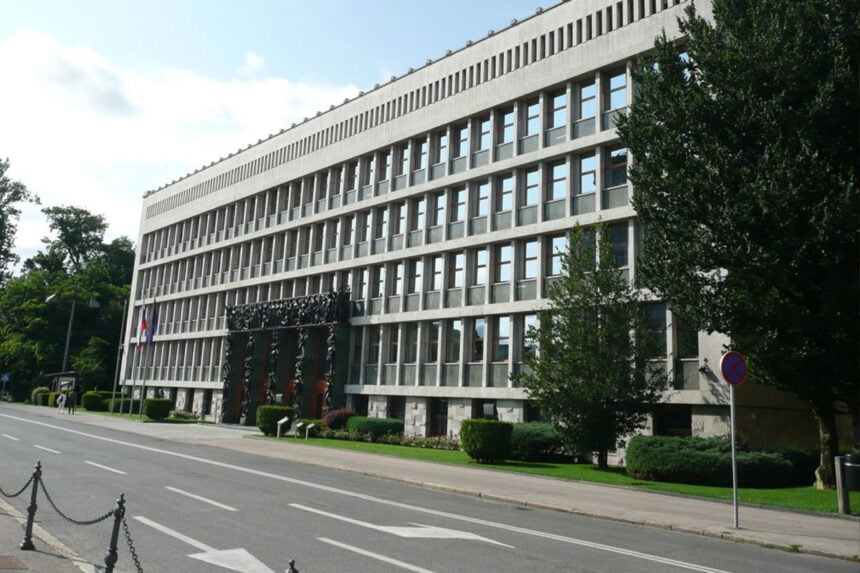On March 28, 2024, Slovenia joined a growing list of European countries taking a definitive stance against flavored vaping products. The Slovenian National Assembly’s decision to pass a flavor ban, excluding tobacco flavors, is a move that will undoubtedly reshape the vaping landscape within the country. This amendment to the tobacco control law, which is scheduled to come into effect after a 12-month transition period, represents an effort to curb the appeal of vaping products, especially among the youth. Let’s delve deeper into the nuances of this legislation, its potential impact, and the reactions it has sparked among different stakeholders.
The Legislation
The Slovenian government’s amendment aims to limit the availability of vaping products to tobacco flavors, thereby excluding menthol and all other non-tobacco flavors. This ban extends to both nicotine-containing and nicotine-free vaping products, as well as heated tobacco products (HTPs). The rationale behind such a sweeping change is to potentially deter non-smokers, particularly adolescents, from picking up the habit, as flavored e-liquids are often cited as a gateway to nicotine addiction.
The law is set to become enforceable 15 days after its publication in the country’s official gazette, followed by a transition period of 12 months. This grace period is intended to give both consumers and the vape industry time to adapt to the new regulations.
The Context
With approximately 26,200 vapers, which is about 1.48% of the adult population, Slovenia isn’t one of the leading European countries in terms of vaping prevalence. However, the country is taking a preemptive approach to tobacco harm reduction, given that more than 400,000 Slovenians, representing 22.7% of the adult population, are cigarette smokers.
Slovenia has already been collecting a vape tax of €0.18 per milliliter on e-liquid, which adds a significant additional cost to vaping products. This tax, coupled with the new flavor ban, could make vaping less financially viable and less attractive to consumers.
European Landscape
Slovenia’s decision does not exist in a vacuum. It is the seventh European Union member state to implement a vape flavor ban, following the likes of Denmark, Estonia, Finland, Hungary, Lithuania, and the Netherlands — albeit the latter’s ban has yet to be fully implemented. Each of these countries has approached the issue of vaping and its regulation from the perspective of public health, with particular concern for youth uptake.
Impact and Implications
The implications of Slovenia’s flavor ban are multifaceted. On the one hand, proponents argue that the ban will reduce the appeal of e-cigarettes to non-smoking youths, potentially preventing a new generation from becoming addicted to nicotine.
Conversely, opponents of the ban, including consumer organizations and some public health experts, argue that flavored vaping products are a critical tool for harm reduction. They suggest that flavors play a significant role in helping existing smokers switch from more harmful traditional cigarettes to less harmful e-cigarettes. There is also concern that the ban could create a black market for flavored e-liquids, which could lead to unregulated and possibly unsafe products circulating among consumers.
Consumer Perspective
From a consumer standpoint, the ban presents a significant change. An Ipsos Consumer Survey conducted in March 2024 sheds light on the potential reactions of current vapers. Faced with a flavor ban, some might seek alternative means to obtain their preferred flavors, potentially through unregulated channels. Others may revert to smoking traditional cigarettes or cease using vaping products altogether.
Industry Response
For the vaping industry in Slovenia, the flavor ban is a hurdle that necessitates adaptation. The industry, which has already been navigating tax challenges, must now find ways to diversify and innovate within the constraints of the new law. There is a likelihood that the industry will see a consolidation, with smaller players unable to survive the regulatory shifts.
Looking Ahead
As Slovenia moves forward with its flavor ban, the global debate on vaping regulation continues. Public health objectives collide with concerns about consumer freedom and harm reduction strategies. Slovenia’s approach reflects a cautious stance, prioritizing the prevention of youth uptake over the potential benefits vaping may hold for adult smokers looking to quit.
In the coming year, it will be crucial to monitor the implementation of this ban, the industry’s response, and the behavior of vapers in Slovenia. Will the ban achieve its intended public health outcomes, or will it lead to unintended consequences? Only time will tell, but Slovenia’s example will surely provide valuable insights for other countries grappling with the regulation of vaping products.

There is noticeably a bundle to know about this. I assume you made certain nice points in features also.